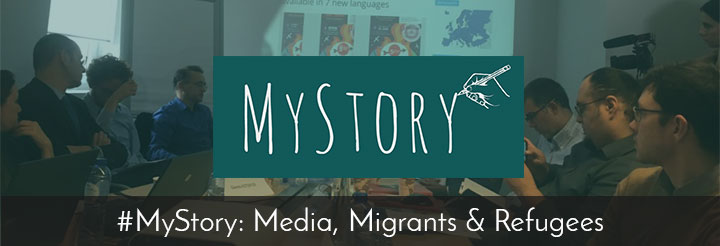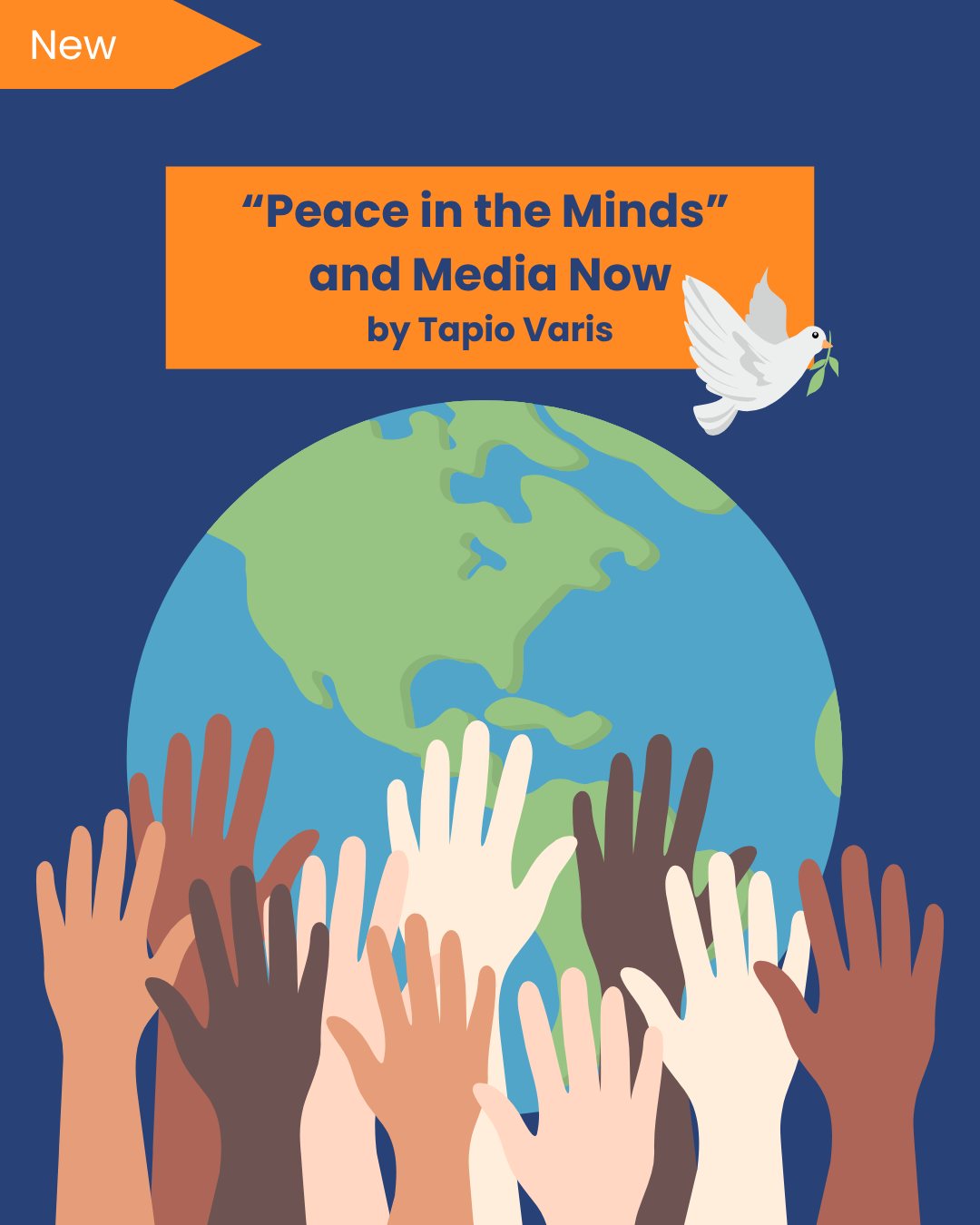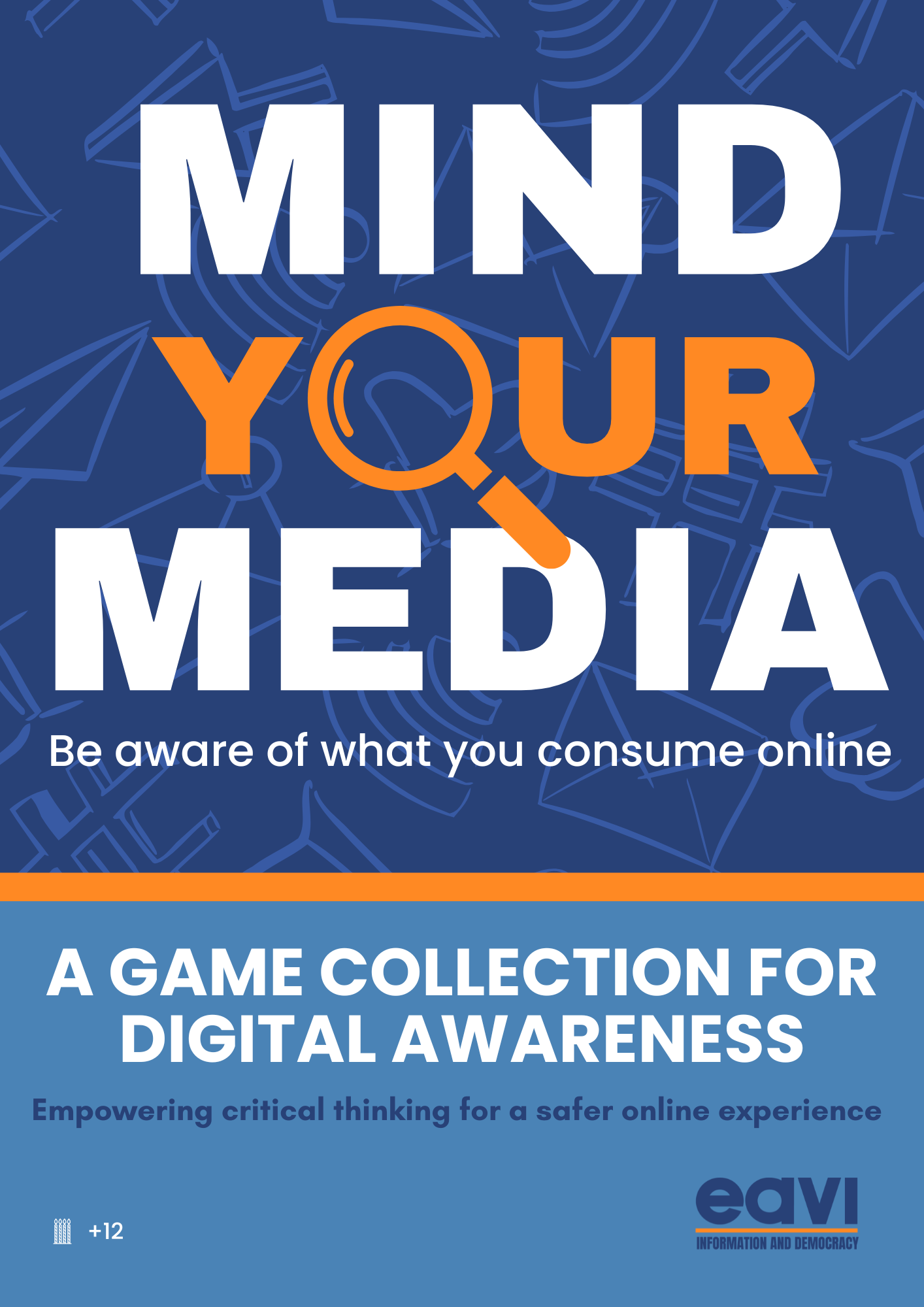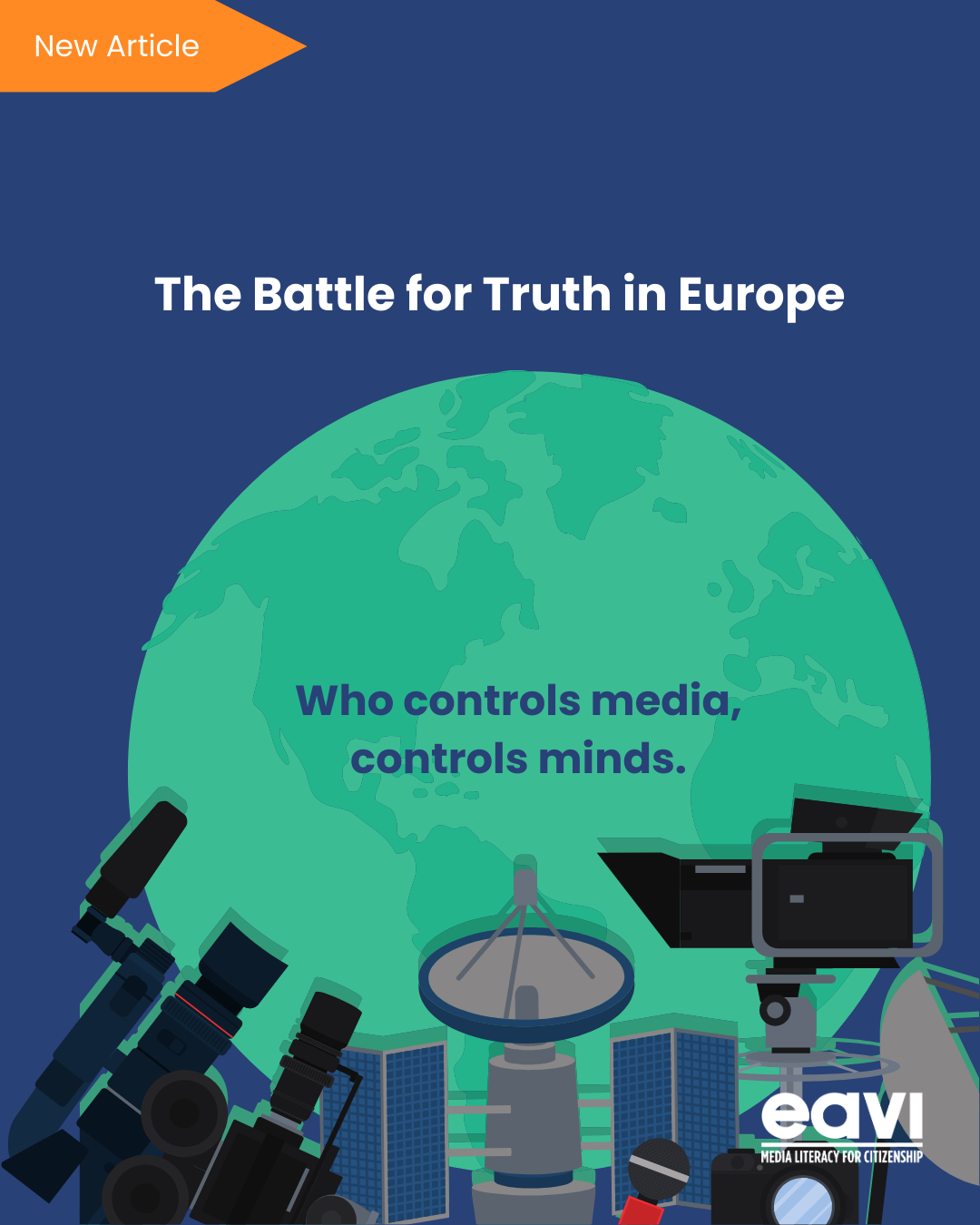“We shouldn’t talk about quality journalism. Quality journalism is just journalism.”
Refugees and Migrants: the inconvenient truths – Residence Palace, Brussels, 4th October 2016
We kicked off EAVI’s project #MyStory: Media, Migrants & Refugees (funded by European Commission), on Tuesday October 4th.
The first #MyStory event, organised by the Alliance Internationale de Journalistes (AIJ) and the European Federation of Journalists (EFJ) at their offices in Brussels, involved roundtable debates with around 50 people in attendance. The debate addressed Europe’s reaction to mass migration and the dangers of sensationalism, political bias and stereotyping in mainstream media discourse. Over three hours of discussion, the debate offered an excellent opportunity for organisations and journalists working with migrants and refugees to discuss how they can better coordinate and communicate with each other with aim of telling stories about refugees and migrants with more fairness and accuracy.
Ricardo Gutierrez highlighted journalists’ pivotal role in shaping public opinion, saying that building a constructive dialogue between media organisations, NGOs, academic researchers and social activists is key to presenting a balanced and exhaustive view of the migration phenomenon.
UNHCR’s spokeswoman, Maeve Patterson emphasized the importance for journalists to effectively tell the story behind the figures, while ANSA journalist Alessio Pisano stressed that the virtuous practice of closely collaborating with civil society organisations to ensure factual accuracy is often hindered by the pressures of the 24 hour news cycle.
Rigorous training for media professionals, appropriate terminology and expert consultation were also advocated by Carta di Roma’s Martina Chichi and Charter of Idomeni’s Yannis Kotsifos. Speaking about preserving the social role of journalists, they advocated contextualizing data and fighting stigmatisation of vulnerable groups through innovative forms of story-telling.
Other tech-oriented organizations like InterMedia KT – whose representative Panagiotis Antonopoulos was also present at the debate – are already supporting migrant organizations through the development of bespoke apps designed to help social workers and inform migrants and refugees about relevant legal issues.
But the path to ethical news-making is steep. As pointed out by EFJ Journalist Jean-Paul Marthoz, media organizations are often reluctant to voice the journalists’ perspectives in their efforts to remain commercially competitive. A holistic approach to public information is needed, and restoring trust is absolutely vital to overcome its structural biases.
In fact, so many people spoke, offering us expert information and opinion and we are grateful to the European Federation of Journalists for hosting us and Giovanni Melogli for organising this event.
For a full rundown of the agenda and those who spoke see the attached pdf here. We filmed the whole thing so keep your eyes peeled for further updates.
We were also excited to meet all our new project partners (seen below) for the first time and and we look forward to working with them.
Check out some of the #MyStory tweets from the event below the jump.
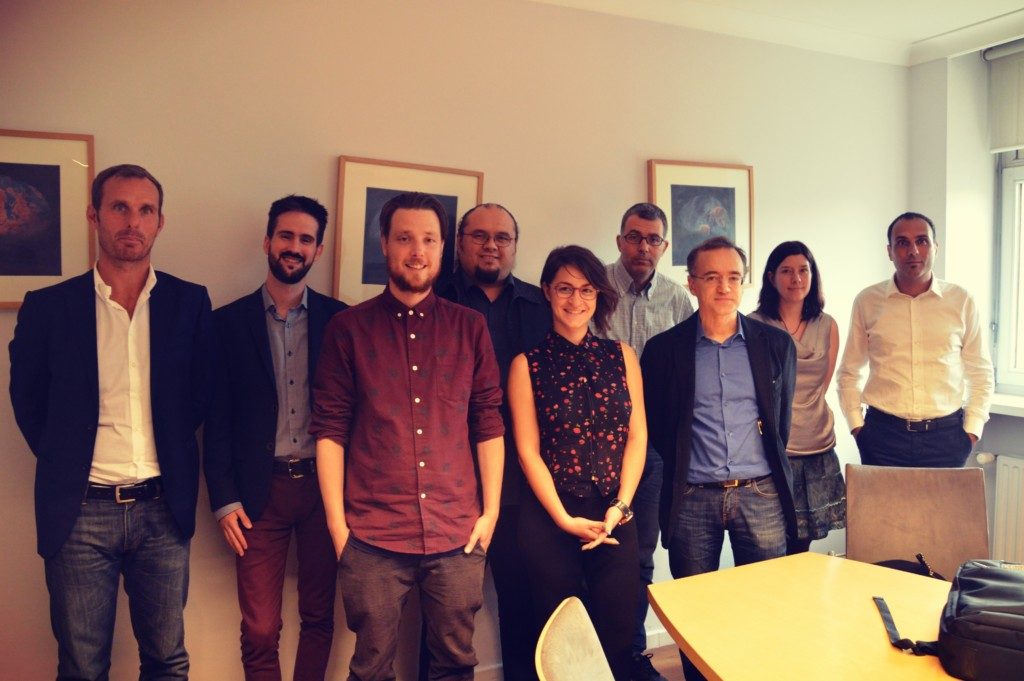
Huge bias disparity in Hungary on media reporting of crime against refugees & crime committed by refugees #MyStory
— EAVI Media Literacy (@_eavi) October 4, 2016
3 euro to charge a telephone are asked to migrants in the Indomeni camp. #MyStory @_eavi pic.twitter.com/41C2EiMAEI
— Paolo Celot (@PaoloCelot) October 4, 2016
.@mpat79 (UNHCR @Refugees Bureau for Europe): "You guys have the power! You guys have the reach! Tell the story behind the figures"#MyStory
— Ricardo Gutiérrez (@Molenews1) October 4, 2016
Interesting view from perspective of the media working on the ground. #MyStory https://t.co/03SSI7g219
— Luc Steinberg (@earnest_m) October 4, 2016
.@YannisKotsifos presenting the Charter of Idomeni#ReportingOnRefugees#MyStoryhttps://t.co/AFVV6hWTJo pic.twitter.com/QRhUoUsUWG
— Ricardo Gutiérrez (@Molenews1) October 4, 2016
https://twitter.com/mehmetkoksal/status/783260377500889088
#MyStory fruitful fascinating discussions btw. Journalists and NGOs about crucial role of journalists in #reporting on refugees.@EFJEUROPE pic.twitter.com/ARApcMW7Ty
— Renate Schroeder (@renatemargot) October 4, 2016
In Italy only 7% of news stories on migrants/refugees actually involve #migrants and refugees #mystory
— EAVI Media Literacy (@_eavi) October 4, 2016
The biggest requests @UNmigration received from journalists are data. Tips to #journalists: put figures in context! #MyStory
— EFJ (@EFJEUROPE) October 4, 2016
In Idomeni often refugees are charged 5€ for sandwich when locals are charged €3 #MyStory
— EAVI Media Literacy (@_eavi) October 4, 2016
This 5-point test for hate speech is also relevant for every citizen active in social media #MediaLiteracy #MyStory @EJNetwork https://t.co/3aju0zyGlI
— Disinformation & Media Literacy in the EU (@EU_MediaLit) October 4, 2016
“We shouldn’t talk about quality journalism. Quality journalism is just journalism.”
Refugees and Migrants: the inconvenient truths – Residence Palace, Brussels, 4th October 2016
We kicked off EAVI’s project #MyStory: Media, Migrants & Refugees (funded by European Commission), on Tuesday October 4th.
The first #MyStory event, organised by the Alliance Internationale de Journalistes (AIJ) and the European Federation of Journalists (EFJ) at their offices in Brussels, involved roundtable debates with around 50 people in attendance. The debate addressed Europe’s reaction to mass migration and the dangers of sensationalism, political bias and stereotyping in mainstream media discourse. Over three hours of discussion, the debate offered an excellent opportunity for organisations and journalists working with migrants and refugees to discuss how they can better coordinate and communicate with each other with aim of telling stories about refugees and migrants with more fairness and accuracy.
Ricardo Gutierrez highlighted journalists’ pivotal role in shaping public opinion, saying that building a constructive dialogue between media organisations, NGOs, academic researchers and social activists is key to presenting a balanced and exhaustive view of the migration phenomenon.
UNHCR’s spokeswoman, Maeve Patterson emphasized the importance for journalists to effectively tell the story behind the figures, while ANSA journalist Alessio Pisano stressed that the virtuous practice of closely collaborating with civil society organisations to ensure factual accuracy is often hindered by the pressures of the 24 hour news cycle.
Rigorous training for media professionals, appropriate terminology and expert consultation were also advocated by Carta di Roma’s Martina Chichi and Charter of Idomeni’s Yannis Kotsifos. Speaking about preserving the social role of journalists, they advocated contextualizing data and fighting stigmatisation of vulnerable groups through innovative forms of story-telling.
Other tech-oriented organizations like InterMedia KT – whose representative Panagiotis Antonopoulos was also present at the debate – are already supporting migrant organizations through the development of bespoke apps designed to help social workers and inform migrants and refugees about relevant legal issues.
But the path to ethical news-making is steep. As pointed out by EFJ Journalist Jean-Paul Marthoz, media organizations are often reluctant to voice the journalists’ perspectives in their efforts to remain commercially competitive. A holistic approach to public information is needed, and restoring trust is absolutely vital to overcome its structural biases.
In fact, so many people spoke, offering us expert information and opinion and we are grateful to the European Federation of Journalists for hosting us and Giovanni Melogli for organising this event.
For a full rundown of the agenda and those who spoke see the attached pdf here. We filmed the whole thing so keep your eyes peeled for further updates.
We were also excited to meet all our new project partners (seen below) for the first time and and we look forward to working with them.
Check out some of the #MyStory tweets from the event below the jump.

Huge bias disparity in Hungary on media reporting of crime against refugees & crime committed by refugees #MyStory
— EAVI Media Literacy (@_eavi) October 4, 2016
3 euro to charge a telephone are asked to migrants in the Indomeni camp. #MyStory @_eavi pic.twitter.com/41C2EiMAEI
— Paolo Celot (@PaoloCelot) October 4, 2016
.@mpat79 (UNHCR @Refugees Bureau for Europe): "You guys have the power! You guys have the reach! Tell the story behind the figures"#MyStory
— Ricardo Gutiérrez (@Molenews1) October 4, 2016
Interesting view from perspective of the media working on the ground. #MyStory https://t.co/03SSI7g219
— Luc Steinberg (@earnest_m) October 4, 2016
.@YannisKotsifos presenting the Charter of Idomeni#ReportingOnRefugees#MyStoryhttps://t.co/AFVV6hWTJo pic.twitter.com/QRhUoUsUWG
— Ricardo Gutiérrez (@Molenews1) October 4, 2016
https://twitter.com/mehmetkoksal/status/783260377500889088
#MyStory fruitful fascinating discussions btw. Journalists and NGOs about crucial role of journalists in #reporting on refugees.@EFJEUROPE pic.twitter.com/ARApcMW7Ty
— Renate Schroeder (@renatemargot) October 4, 2016
In Italy only 7% of news stories on migrants/refugees actually involve #migrants and refugees #mystory
— EAVI Media Literacy (@_eavi) October 4, 2016
The biggest requests @UNmigration received from journalists are data. Tips to #journalists: put figures in context! #MyStory
— EFJ (@EFJEUROPE) October 4, 2016
In Idomeni often refugees are charged 5€ for sandwich when locals are charged €3 #MyStory
— EAVI Media Literacy (@_eavi) October 4, 2016
This 5-point test for hate speech is also relevant for every citizen active in social media #MediaLiteracy #MyStory @EJNetwork https://t.co/3aju0zyGlI
— Disinformation & Media Literacy in the EU (@EU_MediaLit) October 4, 2016
“We shouldn’t talk about quality journalism. Quality journalism is just journalism.”
Refugees and Migrants: the inconvenient truths – Residence Palace, Brussels, 4th October 2016
We kicked off EAVI’s project #MyStory: Media, Migrants & Refugees (funded by European Commission), on Tuesday October 4th.
The first #MyStory event, organised by the Alliance Internationale de Journalistes (AIJ) and the European Federation of Journalists (EFJ) at their offices in Brussels, involved roundtable debates with around 50 people in attendance. The debate addressed Europe’s reaction to mass migration and the dangers of sensationalism, political bias and stereotyping in mainstream media discourse. Over three hours of discussion, the debate offered an excellent opportunity for organisations and journalists working with migrants and refugees to discuss how they can better coordinate and communicate with each other with aim of telling stories about refugees and migrants with more fairness and accuracy.
Ricardo Gutierrez highlighted journalists’ pivotal role in shaping public opinion, saying that building a constructive dialogue between media organisations, NGOs, academic researchers and social activists is key to presenting a balanced and exhaustive view of the migration phenomenon.
UNHCR’s spokeswoman, Maeve Patterson emphasized the importance for journalists to effectively tell the story behind the figures, while ANSA journalist Alessio Pisano stressed that the virtuous practice of closely collaborating with civil society organisations to ensure factual accuracy is often hindered by the pressures of the 24 hour news cycle.
Rigorous training for media professionals, appropriate terminology and expert consultation were also advocated by Carta di Roma’s Martina Chichi and Charter of Idomeni’s Yannis Kotsifos. Speaking about preserving the social role of journalists, they advocated contextualizing data and fighting stigmatisation of vulnerable groups through innovative forms of story-telling.
Other tech-oriented organizations like InterMedia KT – whose representative Panagiotis Antonopoulos was also present at the debate – are already supporting migrant organizations through the development of bespoke apps designed to help social workers and inform migrants and refugees about relevant legal issues.
But the path to ethical news-making is steep. As pointed out by EFJ Journalist Jean-Paul Marthoz, media organizations are often reluctant to voice the journalists’ perspectives in their efforts to remain commercially competitive. A holistic approach to public information is needed, and restoring trust is absolutely vital to overcome its structural biases.
In fact, so many people spoke, offering us expert information and opinion and we are grateful to the European Federation of Journalists for hosting us and Giovanni Melogli for organising this event.
For a full rundown of the agenda and those who spoke see the attached pdf here. We filmed the whole thing so keep your eyes peeled for further updates.
We were also excited to meet all our new project partners (seen below) for the first time and and we look forward to working with them.
Check out some of the #MyStory tweets from the event below the jump.

Huge bias disparity in Hungary on media reporting of crime against refugees & crime committed by refugees #MyStory
— EAVI Media Literacy (@_eavi) October 4, 2016
3 euro to charge a telephone are asked to migrants in the Indomeni camp. #MyStory @_eavi pic.twitter.com/41C2EiMAEI
— Paolo Celot (@PaoloCelot) October 4, 2016
.@mpat79 (UNHCR @Refugees Bureau for Europe): "You guys have the power! You guys have the reach! Tell the story behind the figures"#MyStory
— Ricardo Gutiérrez (@Molenews1) October 4, 2016
Interesting view from perspective of the media working on the ground. #MyStory https://t.co/03SSI7g219
— Luc Steinberg (@earnest_m) October 4, 2016
.@YannisKotsifos presenting the Charter of Idomeni#ReportingOnRefugees#MyStoryhttps://t.co/AFVV6hWTJo pic.twitter.com/QRhUoUsUWG
— Ricardo Gutiérrez (@Molenews1) October 4, 2016
https://twitter.com/mehmetkoksal/status/783260377500889088
#MyStory fruitful fascinating discussions btw. Journalists and NGOs about crucial role of journalists in #reporting on refugees.@EFJEUROPE pic.twitter.com/ARApcMW7Ty
— Renate Schroeder (@renatemargot) October 4, 2016
In Italy only 7% of news stories on migrants/refugees actually involve #migrants and refugees #mystory
— EAVI Media Literacy (@_eavi) October 4, 2016
The biggest requests @UNmigration received from journalists are data. Tips to #journalists: put figures in context! #MyStory
— EFJ (@EFJEUROPE) October 4, 2016
In Idomeni often refugees are charged 5€ for sandwich when locals are charged €3 #MyStory
— EAVI Media Literacy (@_eavi) October 4, 2016
This 5-point test for hate speech is also relevant for every citizen active in social media #MediaLiteracy #MyStory @EJNetwork https://t.co/3aju0zyGlI
— Disinformation & Media Literacy in the EU (@EU_MediaLit) October 4, 2016

